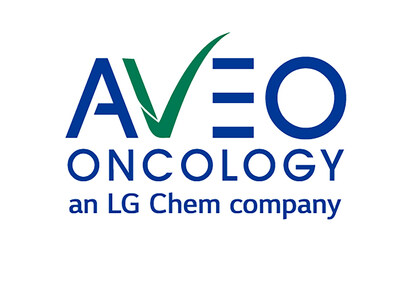AVEO Oncology, an LG Chem company, Presents Two Posters for Tivozanib at the 2025 ASCO GU Meeting
– Cumulative data of three Phase 3 studies demonstrate greater exposure of tivozanib is associated with increased clinical benefit –
– Patient Reported Outcomes were numerically better for patients receiving tivozanib in a second line setting versus third line –
BOSTON, Feb. 18, 2025 /PRNewswire/ -- AVEO Oncology, an LG Chem company ("AVEO"), is a biopharmaceutical company that is trying to provide differentiated solutions to improve cancer patients lives, presented two posters during the 2025 American Society of Clinical Oncology (ASCO) Genitourinary (GU) meeting highlighting continued data for tivozanib, a next-generation vascular endothelial growth factor receptor (VEGFR) tyrosine kinase inhibitor (TKI) designed to block the VEGF pathway by selectively inhibiting all three VEGF receptors.
"Following the TiNivo-2 study results presentation at ESMO 2024 and publication in The Lancet, we were excited to share this data with the oncology community at ASCO GU 2025," said Michael Bailey, president and Chief Executive Officer. "These data build on the robust clinical evidence for tivozanib generated over different studies that have consistently demonstrated clinical benefit and tolerability in the advanced RCC population."
Poster title: "Integrated efficacy and safety exposure response (ER) analysis of tivozanib (TIVO) for the treatment of renal cell cancer (RCC)." – (Abstract: 461; Poster: D29)
AVEO presented data from an exploratory analysis evaluating the efficacy and safety exposure response relationship of tivozanib from three Phase 3 trials that have been conducted with TIVO: TIVO-1, TIVO-3, and TiNivo-2. The objective of the analysis was to better understand the relationship between tivozanib exposure with progression free survival (PFS), tumor size (TS), and hypertension (HTN) using pharmacokinetic (PK) and exposure response (ER) modeling in metastatic renal cell carcinoma (RCC). The analysis demonstrated a strong correlation between higher exposure of tivozanib and improvements in PFS while the exposure level of both the standard dose of 1.34 mg dose and low dose 0.89 mg of tivozanib was associated with a similar incidence of hypertension.
Poster Title: "Patient-reported outcomes (PROs) for tivozanib (TIVO) + nivolumab (NIVO) vs TIVO monotherapy in patients with renal cell carcinoma (RCC) following an immune checkpoint inhibitor (ICI): results of the phase 3 TiNivo-2 study." – (Abstract: 459; Poster: D27)
AVEO presented a poster with data from an exploratory analysis evaluating patient reported outcomes (PROs) from the TiNivo-2 study. TiNivo-2 is a randomized, Phase 3 trial designed to assess the efficacy and safety of a PD-1 inhibitor combination following disease progression on or after prior PD-1/PD-L1 therapy. While the study did not meet its primary endpoint of demonstrating a benefit of adding nivolumab to tivozanib versus tivozanib alone after prior immune checkpoint inhibitor (ICI) exposure, clinically meaningful outcomes were observed with tivozanib monotherapy (1.34 mg) as a second-line (2L) and third-line (3L) treatment following ICI therapy. The analysis used the Functional Assessment of Cancer Therapy Kidney Cancer Symptom Index-Disease-Related Symptoms (FKSI-DRS) and European Organization for Research and Treatment of Cancer (EORTC) QLQ C30 questionnaires, administered at baseline, day 1 of each cycle, and at the end of treatment, to collect patient outcomes.
The analysis indicated that tivozanib maintained the FKSI-DRS and EORTC QLQ-C30 mean scores over time in both treatment arms. Importantly, in the tivozanib monotherapy arm, the proportion of patients who had improvement in FKSI-DRS and EORTC QLQ-C30 scores was numerically better in patients receiving 2L versus 3L treatment, while the portion of patients with a deterioration was smaller in the 2L than in the 3L.
INDICATIONS
FOTIVDA is indicated for the treatment of adult patients with relapsed or refractory advanced renal cell carcinoma (RCC) following two or more prior systemic therapies.
IMPORTANT SAFETY INFORMATION
WARNINGS AND PRECAUTIONS
Hypertension was reported in 45% of patients (22% ≥ Grade 3). Hypertensive crises were reported in 0.8% of patients. Do not initiate FOTIVDA in patients with uncontrolled hypertension. Monitor for hypertension and treat as needed. Reduce the FOTIVDA dose for persistent hypertension not controlled by anti-hypertensive medications. Discontinue FOTIVDA for severe hypertension that cannot be controlled with anti-hypertensive therapy or for hypertensive crisis.
Cardiac failures were reported in 1.6% of patients (1% ≥ Grade 3); 0.6% of events were fatal. Monitor for signs or symptoms of cardiac failure during treatment with FOTIVDA. Manage with dose interruption, dose reduction, or discontinuation.
Cardiac ischemia were reported in 3.2% of patients; 0.4% of events were fatal. Arterial thromboembolic events were reported in 2.0% of patients, including death due to ischemic stroke (0.1%). Closely monitor patients at risk for, or who have a history of these events. Discontinue FOTIVDA in patients who develop severe arterial thromboembolic events, such as myocardial infarction and stroke.
Venous Thrombotic Events (VTE) were reported in 2.4% of patients, including 0.3% fatal events. Closely monitor patients who are at increased risk for these events. Discontinue in patients who develop serious VTEs.
Hemorrhagic Events were reported in 11% of patients; 0.2% of events were fatal. Use FOTIVDA with caution in patients who are at risk for or who have a history of bleeding.
Proteinuria was reported in 8% of patients (2% = Grade 3). Monitor during treatment with FOTIVDA. For moderate to severe proteinuria, reduce the dose or interrupt treatment. Discontinue in patients who develop nephrotic syndrome.
Gastrointestinal (GI) Perforation including fatal cases, has been reported in patients receiving FOTIVDA. Monitor for symptoms of GI perforation or fistula formation periodically throughout treatment with FOTIVDA. Permanently discontinue FOTIVDA in patients who develop severe or life-threatening GI perforation.
Thyroid Dysfunction events were reported in 11% of patients (0.3% ≥ Grade 3). Monitor thyroid function before and during treatment with FOTIVDA.
Wound Healing Complications: Withhold FOTIVDA for at least 24 days prior to elective surgery and do not administer for at least 2 weeks after major surgery and until adequate wound healing is observed.
Reversible Posterior Leukoencephalopathy Syndrome (RPLS) can occur with FOTIVDA. Evaluate for RPLS in patients presenting with seizures, headache, visual disturbances, confusion, or altered mental function. Discontinue if signs or symptoms of RPLS occur.
Embryo-fetal Toxicity: FOTIVDA can cause fetal harm. Advise patients of the potential risk to a fetus, to avoid becoming pregnant and to use contraception during treatment and for one month after the last dose of FOTIVDA. Advise males with female partners of reproductive potential to use effective contraception during treatment and for one month after the last dose of FOTIVDA.
Allergic Reaction to Tartrazine: FOTIVDA 0.89 mg capsule contains FD&C Yellow No. 5 (tartrazine) which may cause allergic-type reactions (including bronchial asthma) in certain susceptible patients.
ADVERSE REACTIONS
Common adverse reactions include fatigue/asthenia, hypertension, diarrhea, decreased appetite, nausea, dysphonia, hypothyroidism, cough, and stomatitis.
Serious adverse reactions include bleeding (3.5%), venous thromboembolism (3.5%), arterial thromboembolism (2.9%), acute kidney injury (2.3%), and hepatobiliary disorders (2.3%).
DRUG INTERACTIONS
Avoid coadministration with strong CYP3A4 inducers.
USE IN SPECIFIC POPULATIONS
Advise women not to breastfeed during treatment and for at least 1 month after the last dose.
The recommended dosage for patients with end-stage renal disease has not been established.
Reduce the FOTIVDA dose for patients with moderate hepatic impairment. The recommended dosage in patients with severe hepatic impairment has not been established.
To report SUSPECTED ADVERSE REACTIONS, contact AVEO Pharmaceuticals, Inc. at 1-833-FOTIVDA (1-833-368-4832) or FDA at 1-800-FDA-1088 or www.fda.gov/medwatch.
Please see full Prescribing Information for FOTIVDA® (tivozanib).
About FOTIVDA® (tivozanib)
FOTIVDA® (tivozanib) is an oral, next-generation vascular endothelial growth factor receptor (VEGFR) tyrosine kinase inhibitor (TKI). It is a potent, selective inhibitor of VEGFRs 1, 2, and 3 with a long half-life designed to improve efficacy and tolerability. AVEO received U.S. Food and Drug Administration (FDA) approval for FOTIVDA on March 10, 2021, for the treatment of adult patients with relapsed or refractory advanced renal cell carcinoma (RCC) following two or more prior systemic therapies, based on data from the TIVO-3 trial comparing FOTIVDA to sorafenib. FOTIVDA was approved in August 2017 in the European Union and other countries in the territory of its partner Recordati UK Ltd. for the treatment of adult patients with advanced RCC. FOTIVDA was discovered by Kyowa Kirin.
About AVEO Pharmaceuticals, Inc.
AVEO is an oncology-focused biopharmaceutical company committed to delivering medicines that provide a better life for patients with cancer. AVEO currently markets FOTIVDA® (tivozanib) in the U.S. for the treatment of adult patients with relapsed or refractory advanced renal cell carcinoma (RCC) following two or more prior systemic therapies. AVEO continues to develop FOTIVDA in immuno-oncology and other novel targeted combinations in RCC and other indications, and has other investigational programs in clinical development. AVEO became a wholly owned subsidiary of LG Chem Life Sciences USA, Inc. on January 19, 2023. AVEO continues to operate under the AVEO Oncology, an LG Chem company, name.
About LG Chem, Ltd. and LG Chem Life Sciences
LG Chem, Ltd. (LG Chem) is a leading global chemical company with a diversified business portfolio in the key areas of petrochemicals, advanced materials, and life sciences. The company manufactures a wide range of products from high-value added petrochemicals to renewable plastics, specializing in cutting- edge electronic and battery materials, as well as drugs and vaccines to deliver differentiated solutions for its customers. LG Chem Life Sciences develops, manufactures, and globally commercializes pharmaceutical products, with a focus on Oncology, Immunology, and Metabolic diseases. Our mission is to transform people's lives through inspiring science and leading innovation. For more information, please visit www.lgchem.com.
Contacts
Media:
John F. Kouten
JFK Communications, Inc.
jfkouten@jfkhealth.com
(908) 227-4714
![]() View original content to download multimedia:https://www.prnewswire.com/news-releases/aveo-oncology-an-lg-chem-company-presents-two-posters-for-tivozanib-at-the-2025-asco-gu-meeting-302377714.html
View original content to download multimedia:https://www.prnewswire.com/news-releases/aveo-oncology-an-lg-chem-company-presents-two-posters-for-tivozanib-at-the-2025-asco-gu-meeting-302377714.html
SOURCE AVEO, an LG Chem company


